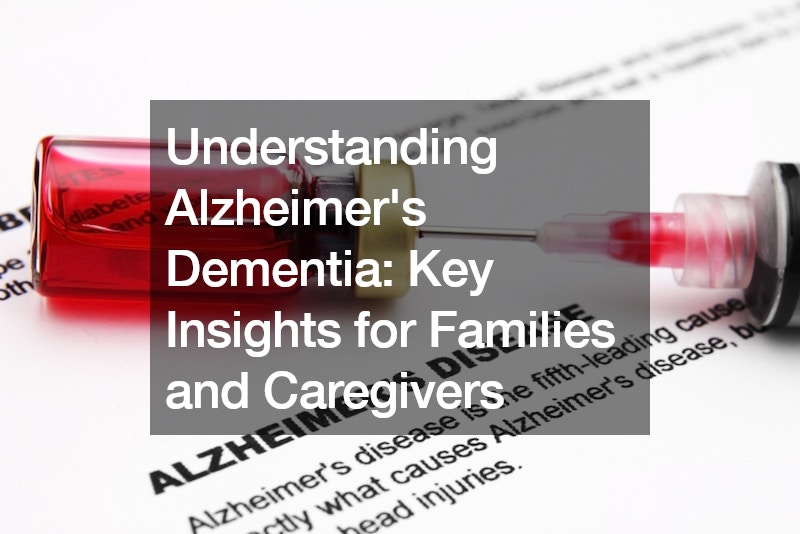Introduction:
Alzheimer’s dementia stands as a formidable challenge, not just for those directly affected but also for their families and caregivers. The journey through this progressive disease brings unique complexities that often defy traditional expectations. In this article, we explore crucial insights to help families and caregivers navigate the intricate landscape of Alzheimer’s, particularly in its later stages.
- Long and Unpredictable Timeline:
The trajectory of Alzheimer’s dementia is characterized by an extended and unpredictable timeline. Families often find themselves grappling with this disease for a decade or more before reaching the late stages.
The introduction of hospice care at this juncture signifies the advanced nature of the condition. This prolonged timeline, akin to a meandering stairway rather than a straightforward decline, presents emotional challenges for families as they witness the gradual deterioration of their loved one.
- Bedridden and Fully Dependent:
As Alzheimer’s progresses, individuals in the late stages become fully bedridden, necessitating extensive care. Caregivers shoulder the responsibility of assisting with all daily living activities, including bathing, changing, and feeding. The toll on families intensifies as the disease erodes the patient’s ability to perform even the most basic tasks, creating a profound need for unwavering support.
- Presence of Infections:
The late stages of Alzheimer’s often bring additional health challenges in the form of infections. Individuals may develop aspiration pneumonia, a condition where inhaling food particles leads to pneumonia, or urinary tract infections. These infections not only complicate caregiving but also emphasize the importance of vigilant medical attention to maintain the patient’s overall well-being.
- Observable Wounds:
The skin, being an organ, undergoes changes as the body shuts down in late-stage Alzheimer’s patients. The lack of mobility and extended periods of bedrest make individuals susceptible to skin breakdown, resulting in observable wounds. Despite caregivers’ diligence, these wounds may still occur, underscoring the need for specialized care to address the physical toll on both patients and their caregivers.
- Difficulty Swallowing:
A significant and challenging aspect of late-stage Alzheimer’s is the eventual cessation of swallowing. This pivotal moment requires family members to allow the body to guide the care process. Rather than resorting to force-feeding, a natural inclination for caregivers, it is essential to let the body’s progression dictate the approach. This involves offering food without insistence, as forcing can lead to aspiration pneumonia.
- Cognitive and Emotional Changes:
Beyond the physical challenges, Alzheimer’s dementia also induces cognitive and emotional changes in patients. Memory loss, confusion, and mood swings become more pronounced, adding another layer of complexity to caregiving. Understanding and adapting to these changes are crucial for maintaining effective communication and providing appropriate support.
- Communication Strategies:
As the disease progresses, verbal communication may become increasingly challenging. Caregivers need to explore alternative communication strategies, such as using visual cues, gestures, and maintaining a calm and reassuring presence. This fosters a more supportive environment and helps ease frustration for both the patient and the caregiver.
- Respite Care and Support Groups:
The relentless nature of Alzheimer’s caregiving can take a toll on family members. Exploring respite care options and joining support groups can provide much-needed relief and a sense of community. Respite care allows caregivers to take a break, preventing burnout, while support groups offer a platform for sharing experiences and learning from others facing similar challenges.
- Legal and Financial Planning:
As the disease progresses, it becomes imperative for families to address legal and financial matters. This includes establishing power of attorney, discussing end-of-life wishes, and ensuring that necessary legal documents are in place. Addressing these aspects early on can alleviate stress and uncertainty for both the patient and their caregivers.
- Advance Care Planning:
Engaging in conversations about advance care planning is essential for families facing Alzheimer’s dementia. This involves discussing preferences for medical treatments, end-of-life care, and other critical decisions. By having these conversations early on, families can ensure that the patient’s wishes are respected and that caregivers are well-prepared for the journey ahead.
Conclusion:
Understanding the intricacies of Alzheimer’s dementia, particularly in its advanced stages, is crucial for families and caregivers. The journey is marked by a combination of physical, cognitive, and emotional challenges, demanding a comprehensive and compassionate approach. Hospice care, introduced in the late stages, plays a pivotal role in providing specialized support, aiming to enhance the quality of life for both patients and their loved ones.
As families navigate the complexities of Alzheimer’s, embracing a holistic approach to care becomes essential. This involves not only addressing the physical, cognitive, and emotional aspects of the disease but also fostering legal and financial preparedness. By recognizing the unpredictable nature of the disease’s progression and integrating additional topics such as advance care planning, families can navigate this challenging journey with greater resilience, empathy, and a more profound understanding of Alzheimer’s dementia.
.





